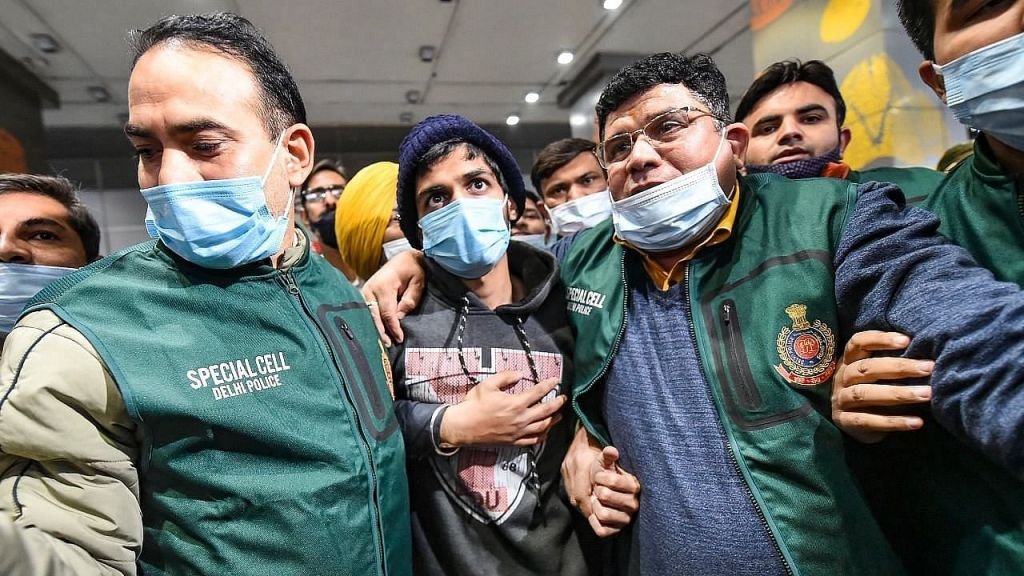In June 2020, an app on GitHub, the popular code repository platform, called Sulli Deals became a talking point for uploading photos of Muslim women without their consent and (fake) auctioning those off to the highest bidders. Many outspoken activists and journalists found their photos on the list, most of them being taken off from Twitter or other social media platforms.
FIRs were registered in the Sulli Deals matter and a request was sent earlier under the Code of Criminal Procedure (CrPC) to GitHub for details, but the platform did not respond
The latest development in the Sulli Deals case is that the Ministry of Home Affairs has approved the Delhi police’s request to seek details from GitHub under the MLAT (Mutual Legal Assistance Treaty). This development comes in six months after the FIRs were registered in Delhi and Noida.
While the Sulli Deals app was taken down following the outrage on social media, no legal action has been taken yet. Almost like clockwork, another fake auction site, called Bulli Bai, has sprung up on GitHub, and it is doing the exact same thing as the other app – auctioning off photos of Muslim women without their consent.
Many of those who have found their photos uploaded on Bulli Bai are repeat victims, and they think that the lack of action from authorities has “emboldened” the offenders to do the same thing again.
Names and photos on the platform included Pakistani activist and Nobel Peace Prize laureate Malala Yousafzai, and closer to home, Kashmiri journalist Quratulain Rehbar, Delhi-based journalist Ismat Ara who lodged an FIR with the Cyber Police in South East Delhi, Radio Mirchi RJ Sayema, and even Najeeb Nafees’ mother Fatima Nafees. Najeeb, a student at Jawaharlal Nehru University in Delhi, went missing more than five years ago after a fight with students from a right-wing organisation on campus.
‘Sulli’ and ‘Bulli’ are both derogatory slangs used for Muslim women and the main idea behind both the apps has been to target these women, particularly those who have raised their voices on Twitter, and other social media platforms, against the current political regime in the country.
Unlike in the Sulli Deals case, three arrests have been made in the Bulli Bai case – 21-year-old Vishal Kumar from Bengaluru, 18-year-old Shweta Singh from Uttarakhand, and 21-year-old Mayank Rawat from Kotdwar in Pauri Garhwal district. All the three arrested are going to be taken to Mumbai for questioning.
Engineering student Vishal’s role was reportedly to edit and upload photos of the women onto the app. Shweta’s name was revealed by Vishal who said that they were in touch and that Shweta knew the people who were working on the posts and activities on the Bulli Bai app. According to reports, Rawat promoted the Bulli Bai app on Twitter and stopped when the content provoked outrage.
Shweta, who is being called the mastermind behind all this, was allegedly working on the instructions of a social media friend from Nepal who was instructing her regarding the “activities” to be carried out on the app. She was also using a fake Twitter handle (JattKhalsa07) to share hate posts, objectionable photos and comments on Twitter. It is currently being probed if Shweta created the Bulli Bai app herself or if someone else was involved.
The case is being handled and investigated by both Mumbai and Delhi Police.
Both the apps work pretty simply. They have photos of Muslim women that those on the app can bid on. These are fake auctions, of course. The main concept is to dehumanize these women to the level of objects that can be auctioned off. Screenshots of these apps, or mentions that they were seen on the app, were often used on Twitter as rebuttals to any Muslim woman being critical of the current regime in an effort to demolish their arguments and shut them up.
How the Bulli Bai case exploits GitHub’s features

